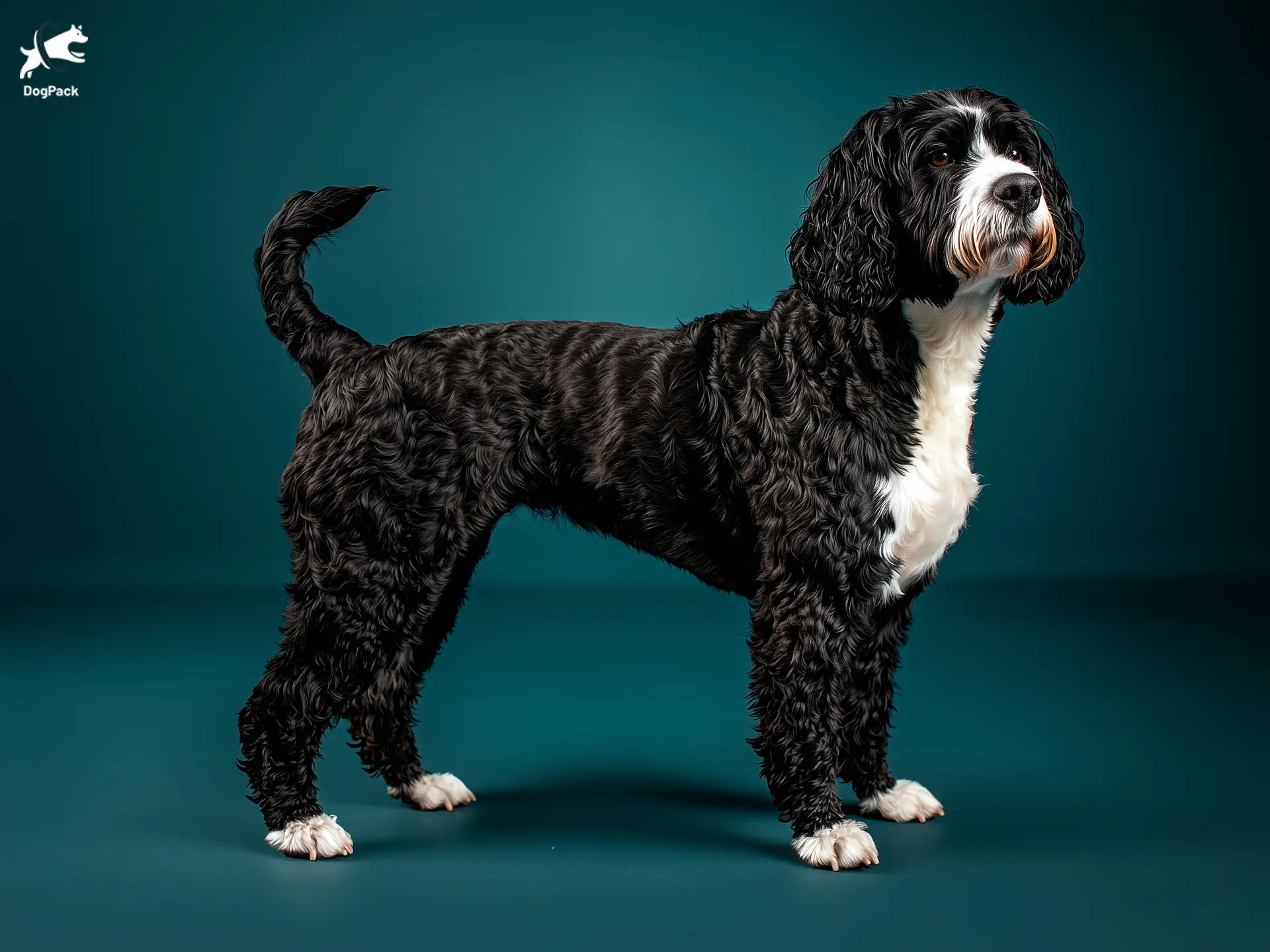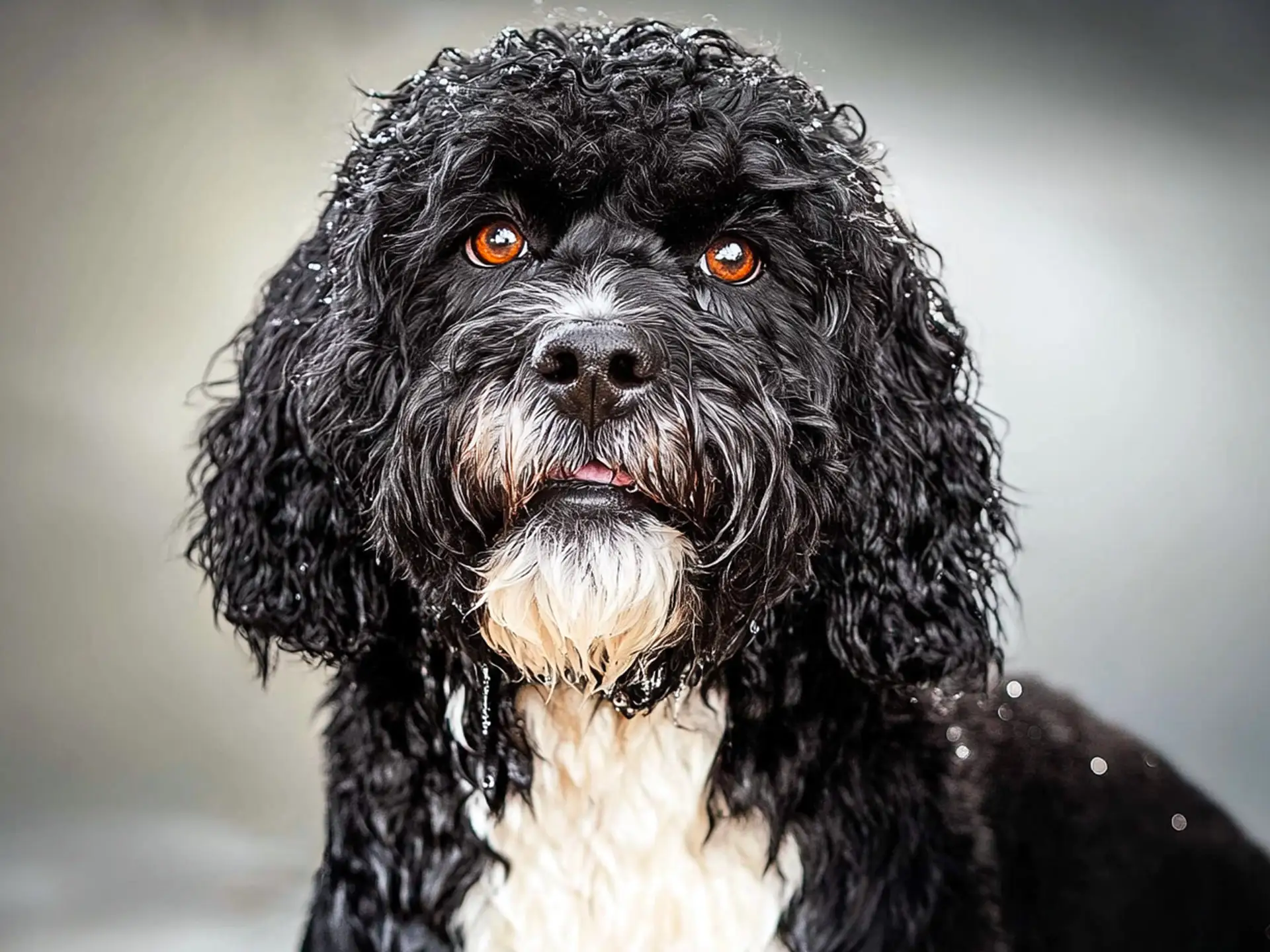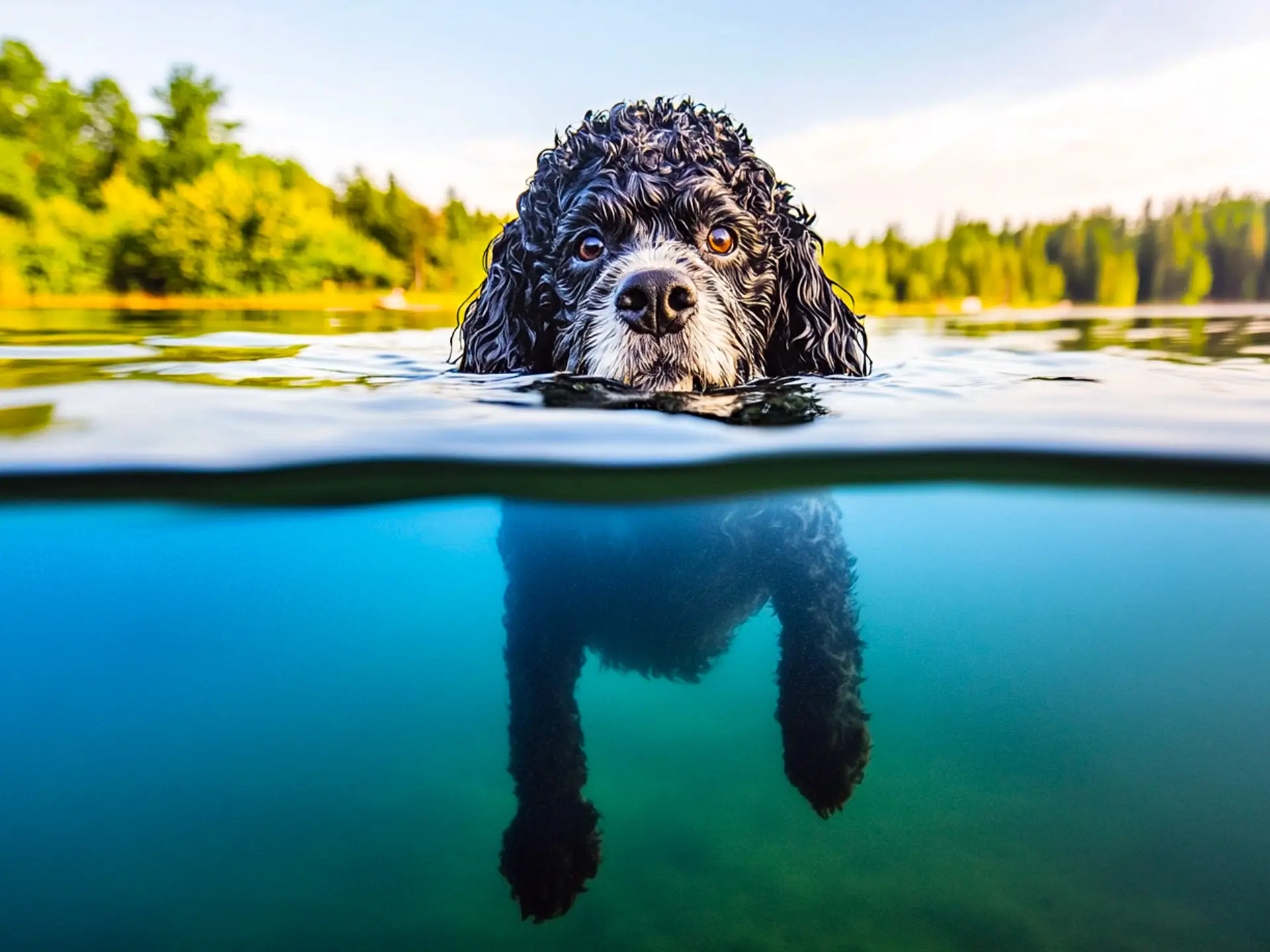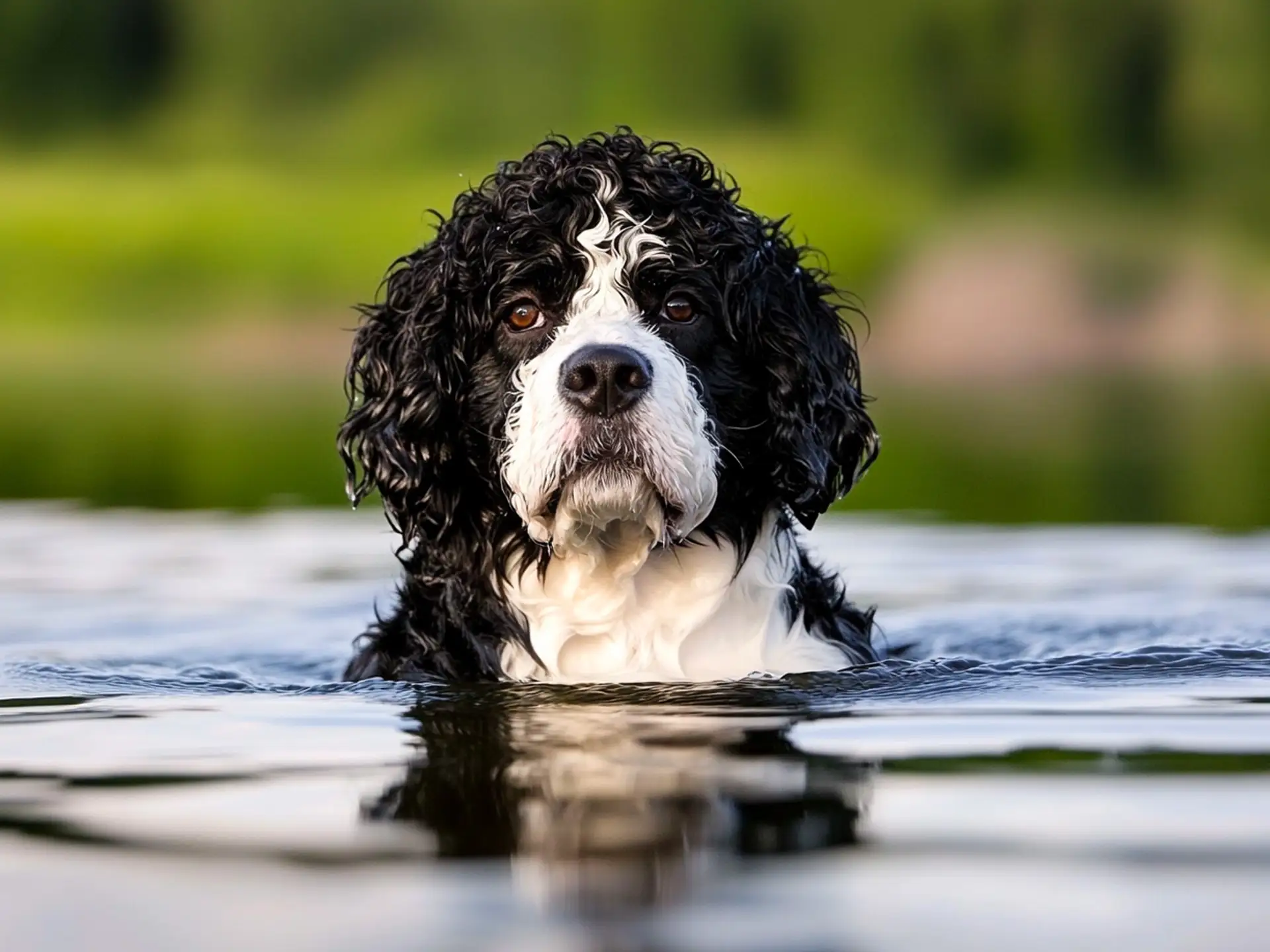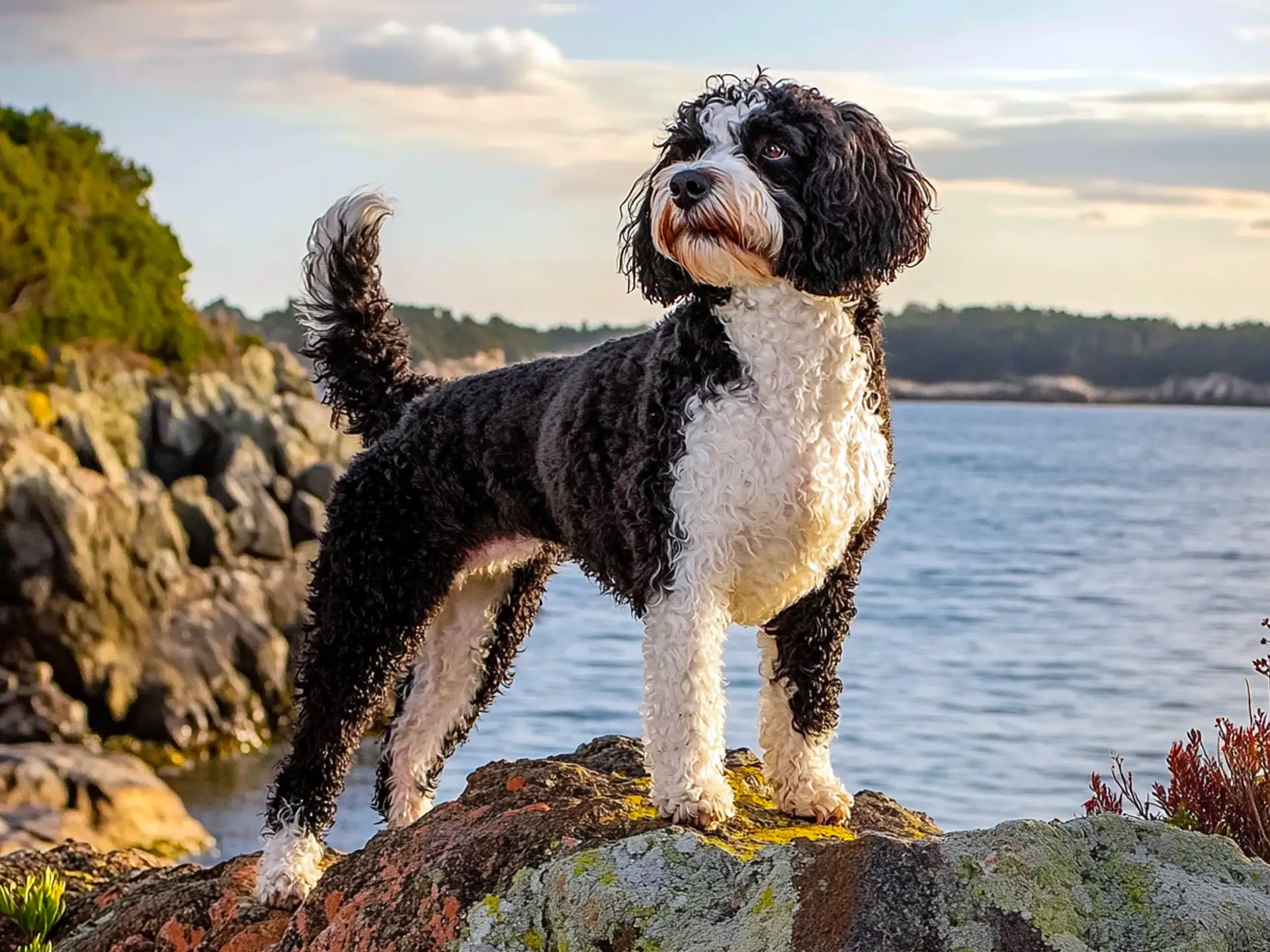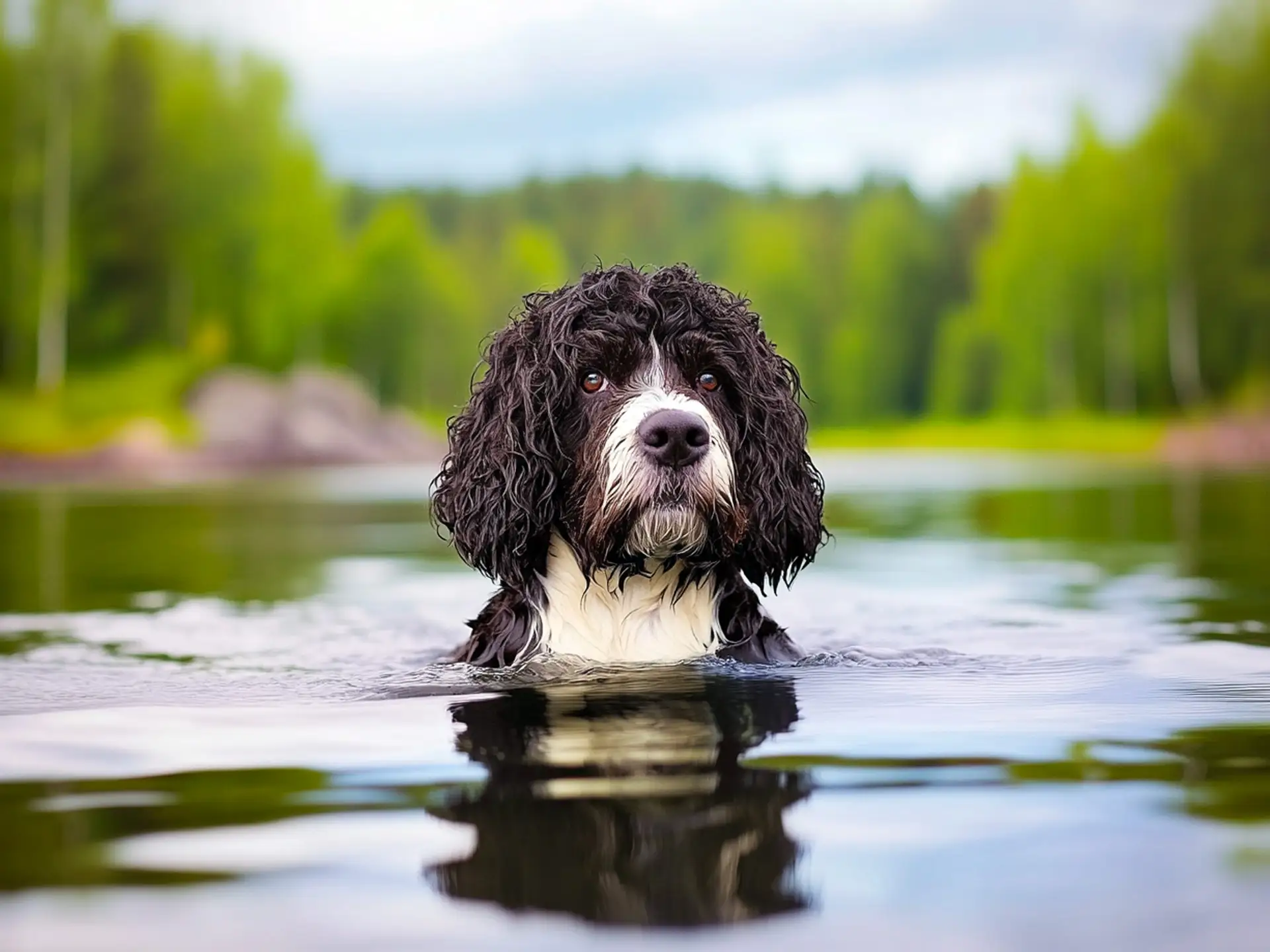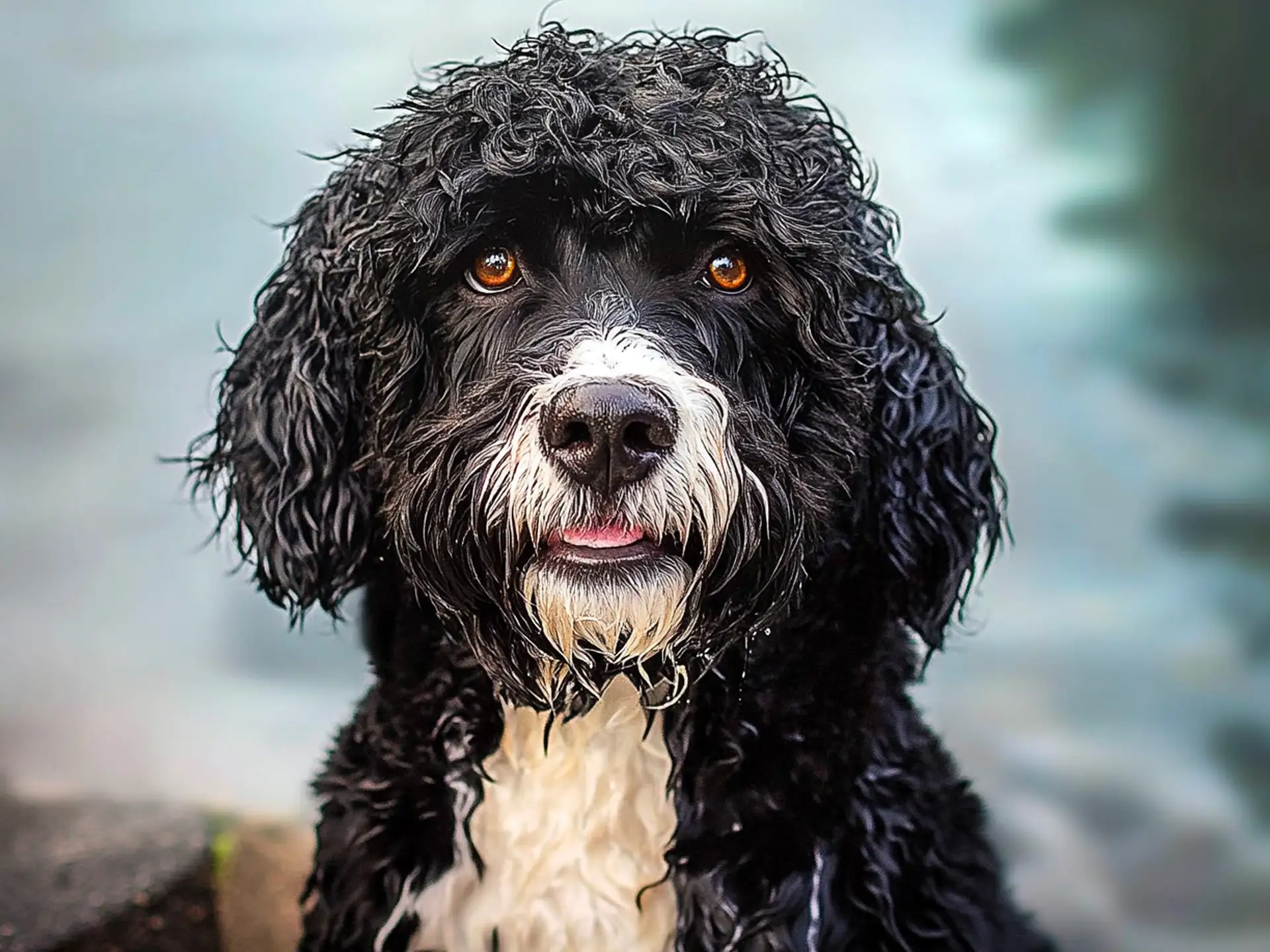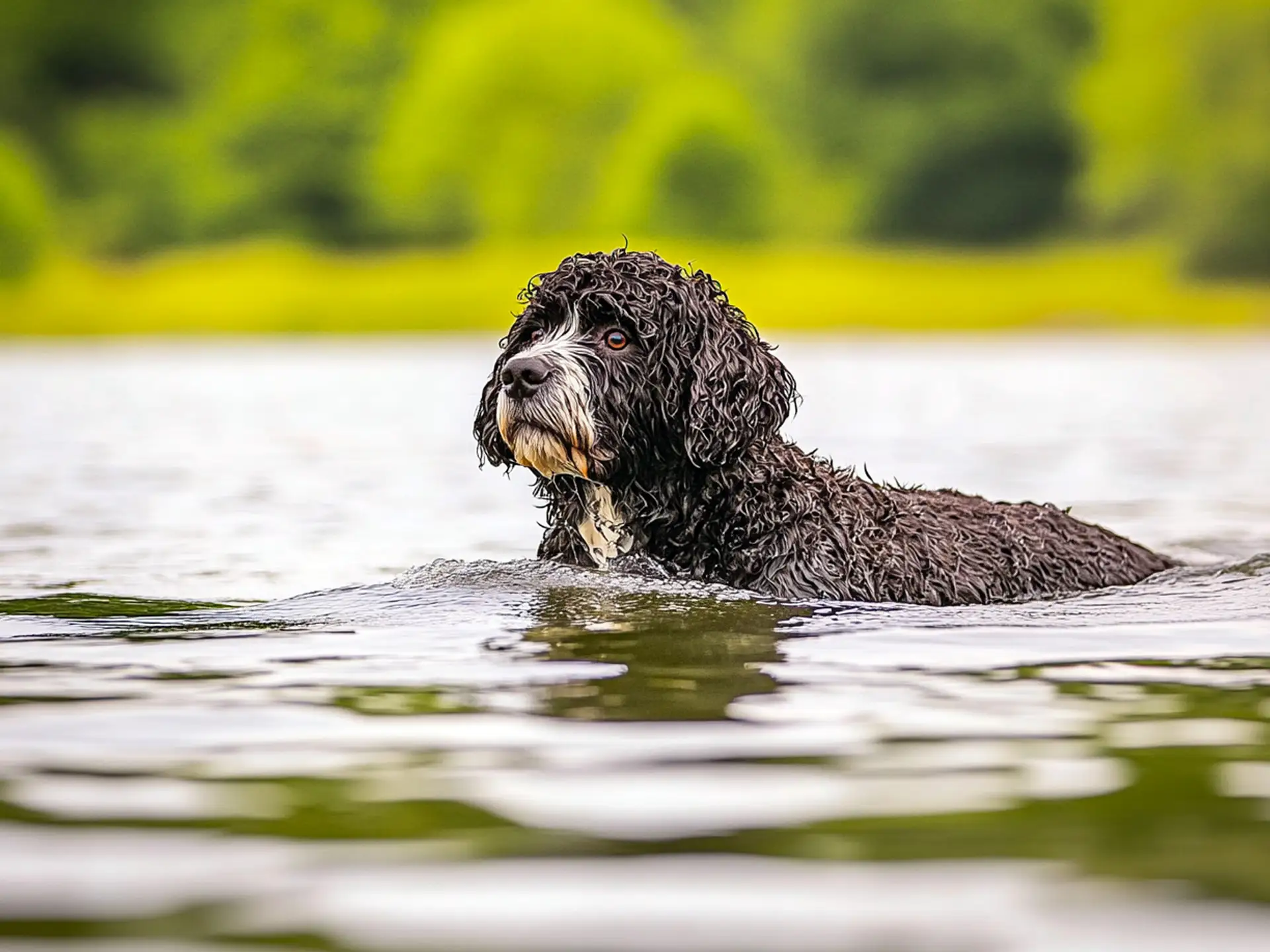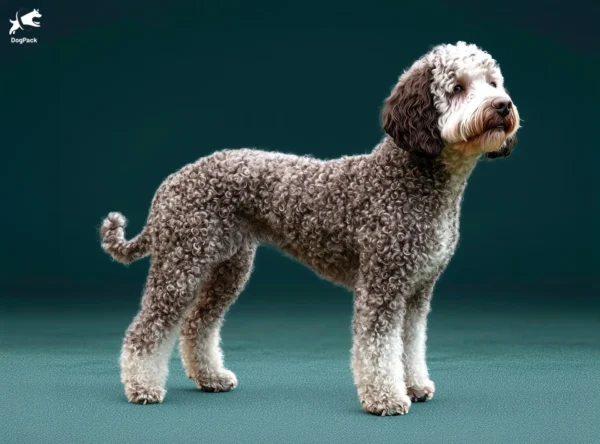Portuguese Water Dog Breed Info & Overview
Get ready to meet a bubbly canine companion that adores making waves—literally! This devoted swimmer has roots in Portugal, where it once assisted fishermen with everything from herding fish to delivering messages between boats. Playful yet hardworking, the Portuguese Water Dog is known for its keen intelligence and zest for life, making it a favorite among active families seeking a loyal sidekick.
Characteristics
Pictures
Breed History
Centuries ago, Portuguese fishermen relied on a remarkable seafaring partner to handle all sorts of maritime tasks. Whether rounding up schools of fish or shuttling messages between ships, these dogs became indispensable crew members. Their loyalty and prowess made them a valuable commodity. Over time, selective breeding solidified their distinct traits, ensuring they would remain adept helpers both on deck and at home.
In the rugged coastal regions of Portugal, this industrious breed earned its keep by fearlessly diving into chilly waters. Hunters of fish scraps and guardians of the nets, they exhibited an uncanny ability to think on their paws. As shipping technologies evolved, the once-essential maritime role diminished, but the Portuguese Water Dog held onto its legacy of intelligence and athleticism.
Although their historical duties receded, these dogs continued to fascinate enthusiasts. Modern admirers helped preserve the breed’s working instincts and cheerful demeanor. Today, the Portuguese Water Dog is cherished for its big personality, quick wit, and unwavering devotion—a lineage shaped by centuries of aquatic adventure. Clubs and registries around the world maintain strict standards to honor its unique water-focused heritage.
Temperament, Personality
Bouncy and brimming with curiosity, this breed enjoys an upbeat outlook on life. It thrives on mental stimulation and can be surprisingly inventive when looking for ways to have fun—especially if water is involved. Constant companionship is something these dogs treasure, and they’ll often follow family members from room to room, eager for the next game or cuddle session.
Kid-friendly and patient, they love to romp around with little ones, yet they’re also gentle and sensitive enough to know when it’s time to settle. When introduced properly, they can get along well with other pets, making them a solid choice for a multi-animal household. However, their energy may require structured activities or training sessions to keep them engaged.
Although the Portuguese Water Dog is outgoing, it can be slightly reserved around strangers at first. Early socialization, including visits to dog-friendly spots and introductions to new faces, encourages a confident, balanced temperament. Their loyalty runs deep, so building a trusting relationship is crucial. Once you’re part of their pack, they’ll shower you with warm greetings and unwavering devotion.
Physical Characteristics
A robust body, strong hindquarters, and a muscular frame allow these dogs to excel in aquatic activities. Their broad chest enables powerful lung capacity for all that enthusiastic paddling. When they trot across the yard or dock, their athleticism is obvious, displaying fluid movement and graceful stride—hallmarks of a capable working companion that was bred for endurance.
The coat can be either curly or wavy, but it’s always dense and water-resistant—an essential feature for a breed accustomed to ocean living. While typically black, Portuguese Water Dogs also come in shades of brown, white, or black-and-white combinations. Their penetrating eyes gleam with intelligence and curiosity, seemingly ready to dive into the next challenge.
Many owners opt for one of two classic trims: the “lion clip,” leaving hair long in the front half and tail tip, or the more uniform “retriever clip.” Either style highlights this breed’s spirited nature and rich coat texture. Sturdy yet agile, the Portuguese Water Dog stands confidently, always prepared to leap into action—especially if a swim is on the agenda.
Health Issues
Though generally robust, these dogs can encounter hip dysplasia, a condition where the hip joint doesn’t develop properly. Routine vet screenings, including hip evaluations and joint X-rays, help identify potential issues early. Providing a balanced diet and maintaining a healthy weight can lessen the strain on their joints, an important preventative measure for this active breed.
Eye problems, such as progressive retinal atrophy (PRA), may appear in some lines. Regular eye exams can detect conditions in their earliest stages, safeguarding long-term vision. Another concern is GM1 storage disease, a rare inherited metabolic disorder. Responsible breeders test for genetic markers to reduce the risk of passing on this condition.
Early detection and consistent veterinary care are key to mitigating common concerns. Keep up-to-date on vaccinations and consider a wellness check every six months, especially once they reach middle age. Exercise caution around water if they’re recovering from any illness or injury—though they adore swimming, it’s best to confirm they’re fully fit before plunging back into their favorite pastime.
Grooming Needs
Their coat is famously low-shedding, but that doesn’t mean low-maintenance. Brushing two to three times a week helps prevent mats, especially around areas of friction like the neck and hind legs. Many owners rely on professional grooming every six to eight weeks to maintain a neat look and keep their Portuguese Water Dog’s coat in prime condition.
Bath time isn’t usually a struggle because these water-lovers are more likely to jump into the tub than shy away. Using a gentle, dog-specific shampoo helps keep their curls glossy and their skin healthy. Pay special attention to their ears, which can trap moisture after swims, leading to infection. Dry them thoroughly and check for redness or odor regularly.
Nail trims, especially for an active dog that might not wear them down naturally, should be done at least once a month. A slicker brush, a comb, and some detangling spray can be your best friends for coat care in between grooming appointments. Finally, regular teeth cleaning keeps their mouth fresh, ensuring this friendly breed is ready for plenty of face-to-face snuggles.
Exercise Requirements
An hour or two of daily activity is a must to satisfy this breed’s boundless energy. Swimming is their top choice, of course, but they also enjoy brisk walks, backyard fetch, and plenty of mental puzzles. Left idle, they may invent their own mischief—tugging on furniture or digging in the yard—so structured playtime is essential for a balanced lifestyle.
Try mixing up the activities, from agility courses to dock diving. A Portuguese Water Dog loves learning new tricks, especially if they can incorporate water or fetch. Varying the routine can prevent boredom and challenge their clever minds. Even a supervised romp in a kiddie pool can brighten their day, channeling that aquatic heritage into a fun bonding experience.
For apartment dwellers, consistent outings are vital—head to a local dog park or find a dog-friendly beach if possible. With the right level of exercise, these dogs can adapt to smaller living spaces. Just be prepared for that playful exuberance to come roaring back every time you pick up a leash, whistle, or any signal that a new adventure beckons.
Training Tips
Eager to please and bright as a button, this breed thrives under positive reinforcement. Offer tasty treats, praise, and interactive toys as rewards. Because they’re so intelligent, Portuguese Water Dogs might get bored if training sessions are repetitive. Keep lessons varied and engaging, introducing new commands at a steady pace to maintain their focus and excitement.
Early socialization is the cornerstone of a well-rounded dog. Expose them to different people, animals, and environments to nurture confidence. These canines respond well to clicker training, which taps into their quick reflexes and ability to learn via sound association. Once they realize good behavior equals yummy treats, they’ll be eager participants in training games.
Consistent boundaries are crucial, given their playful (and sometimes mischievous) personality. If they detect loopholes, they’ll try to exploit them—often in humorous ways that test your patience. Use firm, kind guidance and never rely on harsh methods, as these sensitive souls might shut down. When instruction is clear and upbeat, a Portuguese Water Dog will blossom into an obedient companion.
Nutrition, Diet
Portuguese Water Dogs require a diet rich in high-quality proteins, ideally fish-based or lean poultry, to match their seafaring heritage. Aim for around 1,200 to 1,400 calories per day for a moderately active adult weighing 50–60 pounds, adjusting slightly if your pet is at the heavier or lighter end. Split this intake into two meals to prevent bloating and maintain steady energy.
Include essential fatty acids like omega-3s to support joint health and maintain that glossy, curly coat. You might consider a veterinary-approved fish oil supplement to mimic their maritime roots. Complex carbs—like brown rice or sweet potatoes—offer slow-release energy for extended play sessions. Keep an eye on portion sizes, though, as an overfed Portuguese Water Dog can quickly pack on extra pounds.
Talk to your vet about any specialized dietary needs, such as grain-free kibble if they show signs of allergies or digestive sensitivity. Some individuals benefit from rotational diets, switching protein sources every couple of months to maintain variety. Fresh water is a must, especially after vigorous exercise or swims. With proper nutrition, these dogs maintain the stamina they need to stay active and happy.
Adoption, Breeders
Locating a healthy puppy begins with seeking out a certified breeder who conducts genetic screenings and provides a nurturing environment. Make sure to ask about test results for hip dysplasia and GM1 storage disease. Reputable breeders will offer references from past adopters, letting you gauge the breeder’s track record of raising well-socialized Portuguese Water Dogs.
For those looking to rescue, contacting specialized groups like PetFinder often yields fantastic results. Breed-specific rescues dedicated to Portuguese Water Dogs may have adults in need of loving homes. Keep in mind, older dogs often adapt quickly, bringing plenty of affection without the challenges of puppyhood. An in-person meeting allows you to assess temperament firsthand.
You can also explore the Portuguese Water Dog Club of America (PWDCA) for breeder listings, health tips, and community events. Many clubs hold water trials and competitions—a great way to meet experienced owners who can share valuable insights. Whether you choose a breeder or rescue route, patience and careful research will help you find a devoted, life-long friend.
Family Pet?
Families with energetic children often find that this breed’s enthusiasm meshes perfectly with their active routines. Long games of fetch in the yard or supervised water play sessions at the lake can make weekends memorable. Because Portuguese Water Dogs thrive on interaction, they’re happiest when everyone joins the fun. Children quickly learn responsibility by helping with grooming or basic training.
Their playful spirit can brighten household dynamics, but it’s wise to teach children how to respect a dog’s boundaries and personal space. Supervision during playtime is always recommended, especially with very young kids. A well-socialized Portuguese Water Dog typically welcomes friends and extended family members, adding a delightful sense of humor to gatherings with its lively antics.
Combining gentle patience with protective instincts, they adapt well to family life. If you’re searching for a companion that can join you on day trips, vacations, or even quick errands, this breed checks all the boxes. As long as they receive enough exercise and mental stimulation, they’ll reward you with unwavering loyalty, affection, and plenty of comedic moments around the house.
Right For You?
If you enjoy an outdoorsy lifestyle—think boating weekends, long hikes, and splash-filled afternoons—a Portuguese Water Dog might be your ideal teammate. This breed craves adventure and cherishes close bonds, making them best suited to owners who have time to engage in active play and training. Their minimal shedding is a plus for households looking to keep cleanup under control.
However, those with more sedentary schedules might find these dogs challenging to entertain. They thrive in environments where they can show off their athletic abilities, whether on land or water. Apartment living is feasible but requires diligent exercise routines. Ultimately, matching a dog’s energy level to your own is crucial for a harmonious life together—and these vivacious pups love to move.
Think carefully about your work and travel schedule before inviting such a social, people-oriented dog into your home. They do best with ample company and mental enrichment. If you’re prepared for daily adventures, consistent training, and lots of furry companionship, you’ll be rewarded with an adoring partner. Make sure you’re fully ready to embrace the vibrant spirit this breed brings.
Conclusion
Balanced between playful exuberance and steadfast loyalty, the Portuguese Water Dog can be a wonderful match for families or active individuals who relish outdoor pursuits. This ocean-loving companion requires regular exercise, mental stimulation, and plenty of human interaction. If you’re prepared to offer time, patience, and a sense of fun, you’ll discover a devoted best friend who’s always ready to make a splash.
FAQs
-
What type of work were Portuguese Water Dogs originally bred for?
The Portuguese Water Dog was originally bred to assist fishermen along the coast of Portugal. They retrieved gear, herded fish into nets, and even carried messages between boats and shore.
-
Can Portuguese Water Dogs adapt to boat life or coastal living?
Yes, the Portuguese Water Dog is naturally suited to boat life and coastal environments. Their webbed feet, strong swimming ability, and comfort on water make them ideal companions for sailing or living near lakes and oceans.
-
Do Portuguese Water Dogs bark a lot when left alone?
The Portuguese Water Dog can become vocal or restless if left alone too long. As a working breed with strong bonds to their people, they may bark out of boredom or anxiety, so mental stimulation is key when left solo.
-
Are Portuguese Water Dogs good for agility or dog sports?
Yes, the Portuguese Water Dog excels in agility, obedience, and water sports. Their intelligence, athleticism, and eagerness to work make them standouts in competitive dog activities, especially tasks involving swimming and retrieving.
-
Is the Portuguese Water Dog good at learning complex tasks?
The Portuguese Water Dog is highly intelligent and thrives on learning complex commands. Their history as multi-tasking boat dogs contributes to their ability to quickly grasp routines, puzzles, and even multi-step obedience tasks.
Breed Ratings
Exceptionally bright, capable of quickly learning complex tasks and excelling in various canine sports.
Always ready for a game, this spirited breed turns ordinary days into fun-filled adventures.
Brimming with stamina and enthusiasm, they require daily activity to stay balanced and satisfied.
Known for minimal shedding, but regular grooming is a must to maintain their curly coat.
Generally manageable, although they may occasionally chase small animals if not well-socialized.
Professional grooming and frequent brushing are needed, yet their coat is relatively simple to care for with consistency.
Quick learners who respond well to reward-based methods; just keep sessions fresh and fun.
Highly social, they can become anxious if left alone for extended periods without enrichment.
Will alert you to strangers but isn’t typically prone to excessive noise.
Relatively low drool factor, making them suitable for owners who prefer a drier companion.
Gets along well with other dogs when socialized young, though supervision is wise.
Overall robust, but needs routine checks for potential hip, eye, and genetic conditions.

